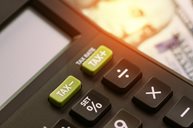How To Keep Tax Records to Maximise Your Deductions
With the end of the tax year fast approaching, many people will be engaged in a last minute battle to find all the paperwork to support the deductions they'd like to claim this tax time. If you've been organised and kept everything you need in a neat, well ordered file, congratulations. But if you've spent 11 months of the year completely ignoring your taxes, you might now be struggling to find receipts and invoices for many of the things you could have claimed for. With the ATO requiring substantiation in order for a deduction to be allowed, here's our guide to keeping on top of your tax record keeping.
Written evidence rule - records you need to keep for claims of more than $300
You must have written evidence to prove your deduction claims if your total claims exceed $300. The records you keep must prove the total amount, not just the amount over $300.
The $300 limit does not apply to claims for car, meal allowance, award transport payments allowance and travel allowance expenses. There are special written evidence rules for these claims (such as the logbook for car allowances).
What if my claim is less than $300?
If the total claimed is $300 or less, you need to be able to show how you calculated your claims but you do not need written evidence.
There is a widespread misconception that you can claim $300 worth of deductions automatically, without having to worry about proving them. That's not the case. If you didn't actually incur the expenses – and can't show how you calculated the amount of your deduction – you can't make a claim.
What is written evidence?
Written evidence can be:
1. A document (such as an invoice or receipt) from the supplier of the goods or services, showing:
- the name of the supplier
- the amount of the expense
- A description of the goods or services purchased. If not shown, you can write this on the document
- the date the expense was incurred
- the date of the document
2. Evidence you have recorded yourself:
- For expenses of $10 each or less where the total of these expenses is $200 or less, or where you have been unable to obtain written evidence - for example, for toll or parking fees where you can't get a receipt.
- Your records must show the same details as a document from a supplier as described above.
In most cases, an invoice or receipt for a purchase is the preferred means of substantiation but in some cases, a bank or credit card statement can be acceptable substantiation.
How long do you need to keep your records?
You must keep your written evidence for five years from 31 October following the end of the tax year or, if you lodge later, for five years from the date you lodge your tax return. If at the end of this period you are in a dispute with the ATO that relates to a work expense, you must keep the relevant records until the dispute is resolved.
For depreciating assets, you must keep records for the entire period over which you claim deductions for the decline in value of those assets. You must keep your records for a further five years from the date of your last claim. The five years start on 31 October following the end of the tax year or, if you lodge later, from the date you lodge your tax return. This period is extended if, when the five years end, you are in a dispute with the ATO that relates to a depreciating asset.
If you use information from your records in a later tax return, you may have to keep records for longer. So, if you carry forward a tax loss, you must keep the records until the end of any period of review for the income tax return in which the loss is fully deducted.
If you own an asset which will be subject to capital gains tax on disposal, you will need to keep records covering the entire period of ownership until 5 years after lodgment of the tax return recording the disposal of the asset.
Paper or electronic copy?
Traditionally, taxpayers keep paper records to support their claims but the ATO permits electronic copies to be kept. Given that paper records are easily lost - and often fade over time – keeping electronic copies (such as a photograph on a mobile device) can be more efficient, provided you ensure that electronic records are regularly backed up to a safe storage space. There are apps on the market which allow you to securely store copies of records, such as the H&R Block ReceiptHub!




.png?width=55&height=48&ext=.png)
-1.svg)

